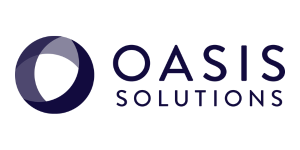Each new year is a fresh start - and the perfect opportunity to evaluate your business processes to determine if you could benefit from a new ERP system.
The new year means many things for businesses - new opportunities, new hires, new goals… or if you’re entering the year with an antiquated system that results in additional workload and difficulties with your backend processes, the new year also means the opportunity to evaluate new ERP solutions.
Uncertain if you’d benefit from a new ERP system? Here are five reasons we’ve identified that your current ERP system might warrant a re-evaluation:
1) Your system is no longer supported
If your system is no longer supported by its vendor, it’s obsolete. Vendors always look to maintain their competitive advantage, aiming to produce forward-thinking solutions that utilize cutting-edge technology and ERP theory.
And as technology and theory rapidly develop, legacy ERP systems – solutions which can’t easily be brought in-line with their modern counterparts – are often left behind.
System retirement creates a range of problems for businesses from vulnerability to evolving security threats and compatibility issues with newly-installed operating systems. As these factors continue to evolve – and your current ERP solution doesn't – the vendor won’t be providing ongoing support to ensure continued compatibility.
2) You've outgrown your current system
Typically, ERP systems are designed to thrive in a particular industry or market, with scales ranging from single-user to tens, hundreds or thousands of employees.
For example: Upon implementation, a company employs ten people and operates a system designed to support approximately 40 users. By year five, that same company is 100 people strong, operating well beyond the scope of its 40 user solution.
Operating beyond the capacity of your ERP can lead to a slew of technical issues, such as data corruption, slow down and concurrent-user caps. Your system can’t manage an excess of simultaneous users and is forced to ration that limited access between employees.
If it doesn’t ration that access, the system strains itself in an attempt to accommodate those additional users. What does this mean? System slow down. The lesson: user limits on paper can cause real-world problems – and might be a reason to consider looking into alternatives if your business has grown since implementing your current ERP solution.
3) Your legacy system can't support your evolving business
Your business can evolve in a number of ways from new products to markets to services to industries. Your legacy ERP system may not be able to keep up with the evolution of your business or be able to guide the growth that other systems could achieve more effectively. A new ERP can provide you with best practice processes and streamlined technology.
Review what add-ons your existing system has/can support in the new direction of your business. Assess the differences between modifying your existing ERP solution and adopting a new ERP.
4) Your existing system gets the job done - but a newer system can do the job better
You’re familiar and comfortable with your current ERP system. You’ve had it for five, ten, even fifteen years and it helps you maintain your business, receiving regular support.
Well, are you really getting everything you need out of your ERP system? Your ERP system may be operating relatively problem-free and your business isn’t set to experience rapid growth, but you could still be missing out on a range of additional benefits you could receive from a new ERP.
From quicker reporting to better and easier integration of data, a new system could provide you with capabilities you weren’t even aware you were missing. Evaluating other ERP solutions could open your eyes to faster, more efficient ways of doing business.
5) Your ERP user experience is a problem
A difficult user experience can be indicative of other problems. If frequent tech support calls or staff-reported system issues are a regular occurrence at your business, a re-evaluation of your solution could pay dividends.
These issues can arise from unsupported software, an unscalable system or the need to augment your existing software package with even more software to fill gaps in functionality.
This adds complexity to your system, building a cobbled ‘franken-system’ that requires users to learn numerous software packages, each with different functions and interfaces - and each with their own set of technical issues.
At the end of the day, businesses begin looking for a new ERP system either reactively: changing their system to eliminate existing technical and operational problems or proactively: moving to a new system that is able to support the future direction/growth of their business.
Regular reviews of your existing ERP system are important as they can highlight your system's shortcomings, as well as regular evaluations of third-party vendors to ensure you are unlocking the full potential of your ERP and benefiting your business.
Not sure where to start? Let the experienced team at Oasis do the lifting for you. With over 30 years implementing and supporting ERP, we can help you evaluate your current processes and ensure you are using your ERP solution to it's full capability. If not, we will guide you onto the path to success and a new ERP. Let's get started.
Related Articles:


